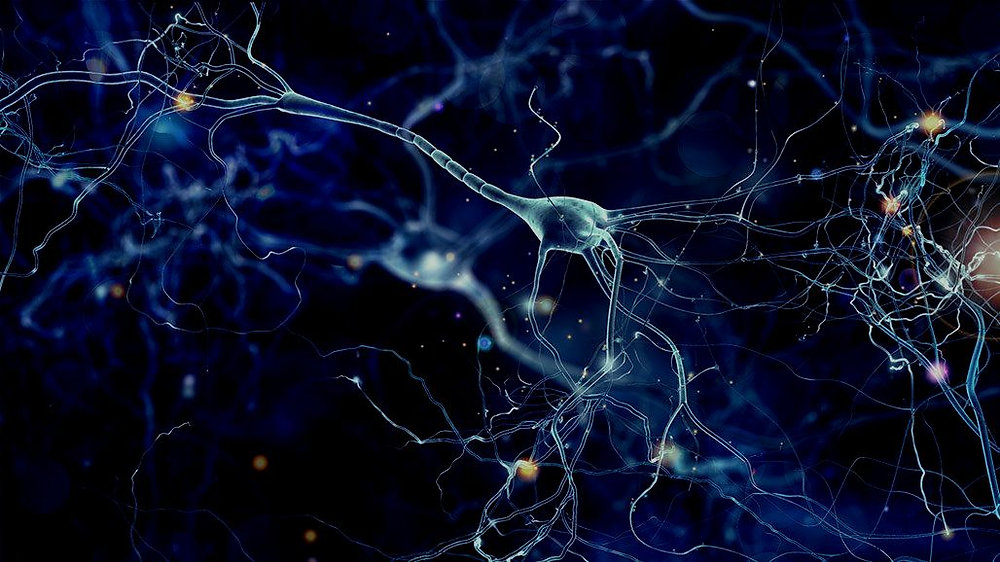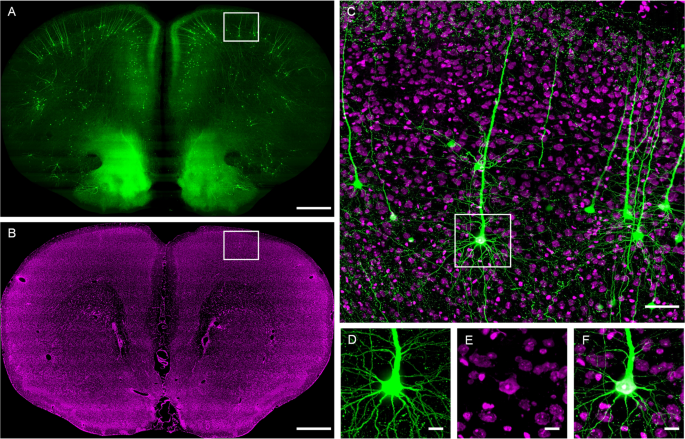Namarupa
Student
- Jan 24, 2024
- 112
Some mystics claim that the psyche can live on for as long as a hundred years after the death of the body, as it's fed unto other forms of organic life.
Last edited:
We wanted to share a quick update with the community.
Our public expense ledger is now live, allowing anyone to see how donations are used to support the ongoing operation of the site.
👉 View the ledger here
Over the past year, increased regulatory pressure in multiple regions like UK OFCOM and Australia's eSafety has led to higher operational costs, including infrastructure, security, and the need to work with more specialized service providers to keep the site online and stable.
If you value the community and would like to help support its continued operation, donations are greatly appreciated. If you wish to donate via Bank Transfer or other options, please open a ticket.
Donate via cryptocurrency:
Neurons allow for consciousness. The molecules that make up a neuron aren't conscious. It's the DNA that allows the neurons to configure themselves in a way that promotes consciousness. One may argue that this is not the case because sponges and Trichoplax don't have neurons, but research has found that sponges have cells that behave similarly to neurons i.e. the precursor for the evolution of neurons (source), likewise with Trichoplax (source).we don't even know what causes consciousness
Atoms won't 'die' for a time that is inconceivable to humans. The lifetime of a proton is greater than 10^25 years (that's 10 with 25 zeros after it). We don't know how life began but we have a theory of it being a primordial soup. Elements coming together, forming bonds over millions to billions of years in the water, chemical reactions caused by the hot vents in the earth and the chemicals exhausted from those vents. Nowadays? If you're cremated, your dead remains may fertilize the earth that grows food for an animal to ingest, in which that animal is ingested by humans and you help eventually feed the development of a growing baby. :) All of the elements within us were created made from a star. Rinse and repeat until the end of the universe.What's the exact step in between dead atoms/molecules and life and later consciousness like we developed it.
Then probably there's nothingness after death which would be pretty good imo. I heard about the fact that people who have transplanted hearts gained memories and such from the donor.Neurons allow for consciousness. The molecules that make up a neuron aren't conscious. It's the DNA that allows the neurons to configure themselves in a way that promotes consciousness. One may argue that this is not the case because sponges and Trichoplax don't have neurons, but research has found that sponges have cells that behave similarly to neurons i.e. the precursor for the evolution of neurons (source), likewise with Trichoplax (source).
In a way, your heart experiences consciousness, too, because it has neurons. A study has shown that heart transplant recipients gain some memories of their donor (even though they had never known who the donor was). Memories of the once-conscious can be transferred in this way. (source)
The reincarnation cases of Shanti Devi and Ryan Hammons have me second guessing! >_< There's many cases of children around the age of 4-8 claiming that they lived another life (especially prior to wide-spread television) and the memories tend to fade as they get older. You gotta wonder...Then probably there's nothingness after death which would be pretty good imo
The reincarnation cases of Shanti Devi and Ryan Hammons have me second guessing! >_< There's many cases of children around the age of 4-8 claiming that they lived another life (especially prior to wide-spread television) and the memories tend to fade as they get older. You gotta wonder...
Someone beat me to it. Thank you for clarifying!Neurons allow for consciousness. The molecules that make up a neuron aren't conscious. It's the DNA that allows the neurons to configure themselves in a way that promotes consciousness. One may argue that this is not the case because sponges and Trichoplax don't have neurons, but research has found that sponges have cells that behave similarly to neurons i.e. the precursor for the evolution of neurons (source), likewise with Trichoplax (source).
In a way, your heart experiences consciousness, too, because it has neurons. A study has shown that heart transplant recipients gain some memories of their donor (even though they had never known who the donor was). Memories of the once-conscious can be transferred in this way. (source)
Atoms won't 'die' for a time that is inconceivable to humans. The lifetime of a proton is greater than 10^25 years (that's 10 with 25 zeros after it). We don't know how life began but we have a theory of it being a primordial soup. Elements coming together, forming bonds over millions to billions of years in the water, chemical reactions caused by the hot vents in the earth and the chemicals exhausted from those vents. Nowadays? If you're cremated, your dead remains may fertilize the earth that grows food for an animal to ingest, in which that animal is ingested by humans and you help eventually feed the development of a growing baby. :) All of the elements within us were created made from a star. Rinse and repeat until the end of the universe.
However, in the Standard Model of particle physics, protons are considered stable particles and do not decay. However, some theories beyond the Standard Model, such as certain grand unified theories (GUTs) or theories involving supersymmetry, predict that protons could decay with an extremely long half-life. However, as of now, experimental evidence has not confirmed proton decay within the parameters predicted by these theories.Neurons allow for consciousness. The molecules that make up a neuron aren't conscious. It's the DNA that allows the neurons to configure themselves in a way that promotes consciousness. One may argue that this is not the case because sponges and Trichoplax don't have neurons, but research has found that sponges have cells that behave similarly to neurons i.e. the precursor for the evolution of neurons (source), likewise with Trichoplax (source).
In a way, your heart experiences consciousness, too, because it has neurons. A study has shown that heart transplant recipients gain some memories of their donor (even though they had never known who the donor was). Memories of the once-conscious can be transferred in this way. (source)
Atoms won't 'die' for a time that is inconceivable to humans. The lifetime of a proton is greater than 10^25 years (that's 10 with 25 zeros after it). We don't know how life began but we have a theory of it being a primordial soup. Elements coming together, forming bonds over millions to billions of years in the water, chemical reactions caused by the hot vents in the earth and the chemicals exhausted from those vents. Nowadays? If you're cremated, your dead remains may fertilize the earth that grows food for an animal to ingest, in which that animal is ingested by humans and you help eventually feed the development of a growing baby. :) All of the elements within us were created made from a star. Rinse and repeat until the end of the universe.
When people talk about "scientific proof of ghosts" they usually site the first law of thermodynamics: matter cannot be created nor destroyed, it can only change forms. So the total amount of energy and matter in the universe always remains constant. So when we die is it possible that our energy manifests as ghosts? Well not if we're gonna stay consistent. Energy is transferred into the environment meaning that human energy transfers like all other organisms energy into other life forms and plants that absorb it. In order to live, we consume and compete for energy. Carnivores eat herbivores. Herbivores eat photosynthesizers. Photosynthesizers eat energy from dying stars. Stars eat energy from disappearing atoms. The last one is technically more of a metaphor: Stars don't exactly "eat" energy from disappearing atoms, but they do generate energy through nuclear fusion. In the core of a star, hydrogen atoms fuse together to form helium, releasing a tremendous amount of energy in the process. This energy is what powers the star. So, rather than "eating" energy from disappearing atoms, stars create energy through nuclear fusion reactions.Similarly to what a few people have said; energy is neither created nor destroyed, only transformed, so it reasonable to figure that our energy than forms out consciousness probably just moves elsewhere. Just like you don't remember what it was like to cease to exist before living right now, if your energy gets transfered, I doubt you'll remember what it was like to exist before then.

The conduction time of the axons of the neurons responsible for the percept (the time it takes for the action potential to zip down from the body of a neuron, to where it connects to its neighbours), 2) the synaptic delay between then neurons responsible (the time it takes for neurotransmitters to travel between the neurons) and 3) the membrane time constant of the neurons responsible (the time it takes for the membrane to respond to neurotransmitters). I've listed them in order of speed, with conduction between neighbouring neurons taking maybe 100 microseconds, synaptic delay being 200 microseconds, and then the time constant of the membrane being 5-50 milliseconds. So it's unlikely that any form of thought generation can be faster than 5-50 milliseconds. That's simply because the brain generates the mind, and if the brain can't change faster than on the order of 5-50 milliseconds, then neither can the mind. Thinking at least requires a recognition. That is a P-300, which takes about 200-300 msec. when normal. Distance is impossible to measure in the cortical cell columns because the processes & pathways followed creating the recognition are unknown.Some mystics claim that the psyche can live on for as long as a hundred years after the death of the body, as it's fed unto other forms of organic life.
We've grown in vitro neurons in my research. They naturally reach out to each other and form their own neural networks. Once they connect, they begin to synchronise their electrical output. This becomes the beginning markers of consciousness--they are able to react to certain stimuli, which is what we see in those creatures with no neurons! Neurons themselves can react to a breath blown across them (it was fun to test them!) Neurons produce neurotransmitters.neurons alone "allow for" consciousness. Cognition, for example arises from the complex interactions of neural networks, neurotransmitters, and other factors within the brain.
Neurons are what allow for consciousness. Without neurons, you cannot have consciousness (outside of two of over 1.5 million species, that exhibit neuron-typical activity as well)."Neuroscience has furnished evidence that neurons are fundamental to consciousness; at the fine and gross scale, aspects of our conscious experience depend on specific patterns of neural activity – in some way, the connectivity of neurons computes the features of our experience"
Right on dude thats awesome! My background is mathematical physics and career wise high-finance. So I'll definitely defer to you in this field! What is your opinion on consciousness being an emergent property?We've grown in vitro neurons in my research. They naturally reach out to each other and form their own neural networks. Once they connect, they begin to synchronise their electrical output. This becomes the beginning markers of consciousness--they are able to react to certain stimuli, which is what we see in those creatures with no neurons! Neurons themselves can react to a breath blown across them (it was fun to test them!) Neurons produce neurotransmitters. They can learn to play a game https://pubmed.ncbi.nlm.nih.gov/36228614/ You need neurons for consciousness. An animal (outside of the two species with no neurons but has neuron-typical activity) that has no neuron activity is a dead animal.
https://www.frontiersin.org/articles/10.3389/fnhum.2022.767612/full
Neurons are what allow for consciousness.
I'm a neuroscientist! XD
So I'm assuming when you say "animal," you're referring to organisms within the animal kingdom because my understanding is that fungi and plants lack neurons but they are in separate kingdoms.We've grown in vitro neurons in my research. They naturally reach out to each other and form their own neural networks. Once they connect, they begin to synchronise their electrical output. This becomes the beginning markers of consciousness--they are able to react to certain stimuli, which is what we see in those creatures with no neurons! Neurons themselves can react to a breath blown across them (it was fun to test them!) Neurons produce neurotransmitters.
https://www.frontiersin.org/articles/10.3389/fnhum.2022.767612/full
Neurons are what allow for consciousness. Without neurons, you cannot have consciousness (outside of the two animals that exhibit neuron-typical activity).
I'm a neuroscientist! XD
Yes, the animal kingdom. That's why I didn't say fungi/plantSo I'm assuming when you say "animal," you're referring to organisms within the animal kingdom because my understanding is that fungi and plants lack neurons but they are in separate kingdoms
I'm not sure it's an opinion so much as it's a fact. A single neuron cannot produce consciousness—~200 neurons working together can and are the minimum number required from what we've found.What is your opinion on consciousness being an emergent property?
I am a neuroscientist, not a physicist. Quantum systems lack inherent properties that can be delineated without considering the context of measurement. I study the physical components of the brain... not so much the quantum physics.What do you think about quantum cognition?
Yes, the animal kingdom. That's why I didn't say fungi/plant
I'm not sure it's an opinion so much as it's a fact. A single neuron cannot produce consciousness—~200 neurons working together can and are the minimum number required from what we've found.
I am a neuroscientist, not a physicist. Quantum systems lack inherent properties that can be delineated without considering the context of measurement. I study the physical components of the brain... not so much the quantum physics.

 www.journalofyoungphysicists.org
www.journalofyoungphysicists.org
Thank you for the links. I have read both of those in the past, but what I've said still stands.Quantum cognition - Wikipedia
en.wikipedia.org

Emergence And Consciousness
Authors: Arpan Dey and Sanchari SenAbstractThe primary question we will attempt to investigate in this article is whether consciousness is a fundamental property of nature, or is it an emergent phenomenon. The nature of consciousness is shrouded in mystery. Although we understand a lot about how...www.journalofyoungphysicists.org
Ah, yes - quantum indeterminacy or the principle of quantum superposition.Thank you for the links. I have read both of those in the past, but what I've said still stands.
So you don't believe in the quantum mind? It's not something I have really looked into, tbh.Thank you for the links. I have read both of those in the past, but what I've said still stands.
I don't have the fundamental prerequisites of knowledge required to talk about quantum cognition. What I do know is that quantum systems lack inherent properties that can be delineated without considering the context of measurement. I study the physical components of the brain, not so much the quantum physics. The other article you linked only talked about quantum mechanics in regards to free will. That's not specifically talking about consciousness.Ah, yes - quantum indeterminacy or the principle of quantum superposition.
So you don't believe in the quantum mind? It's not something I have really looked into, tbh.
It's complicated https://en.wikipedia.org/wiki/Bell's_theoremI don't have the fundamental prerequisites of knowledge required to talk about quantum cognition. What I do know is that quantum systems lack inherent properties that can be delineated without considering the context of measurement. I study the physical components of the brain, not so much the quantum physics. The other article you linked only talked about quantum mechanics in regards to free will. That's not specifically talking about consciousness.
A friend of mine has a PhD in cellular and molecular neuroscience, I'm curious what your area of concentration within neuroscience is?I don't have the fundamental prerequisites of knowledge required to talk about quantum cognition. What I do know is that quantum systems lack inherent properties that can be delineated without considering the context of measurement. I study the physical components of the brain, not so much the quantum physics. The other article you linked only talked about quantum mechanics in regards to free will. That's not specifically talking about consciousness.


Humans do not have complete free will. We are not free from our biology. Our actions are based on how we feel which is influenced by our genetics and environment, which conflicts with how many define free will. I don't want to get into philosophical debate about whether one is morally responsible for their actions. I don't care as long as I can kill myself when I feel the time is right.What do you think about freewill?
We did not have concentrations at our university for Neuroscience. The degree is simply for Neuroscience. My research is currently focusing on glial cell cytoskeletons, molecular complex @ NoR + axon initial segment.A friend of mine has a PhD in cellular and molecular neuroscience, I'm curious what your area of concentration within neuroscience is?
Humans do not have complete free will. We are not free from our biology. Our actions are based on how we feel which is influenced by our genetics and environment, which conflicts with how many define free will. I don't want to get into philosophical debate about whether one is morally responsible for their actions. I don't care as long as I can kill myself when I feel the time is right.
We did not have concentrations at our university for Neuroscience. The degree is simply for Neuroscience. My research is currently focusing on glial cell cytoskeletons, molecular complex @ NoR + axon initial segment.

Haha I leave those sorts of discussions up to philosophers and such.Humans do not have complete free will. We are not free from our biology. Our actions are based on how we feel which is influenced by our genetics and environment, which conflicts with how many define free will. I don't want to get into philosophical debate about whether one is morally responsible for their actions. I don't care as long as I can kill myself when I feel the time is right.
We did not have concentrations at our university for Neuroscience. The degree is simply for Neuroscience. My research is currently focusing on glial cell cytoskeletons, molecular complex @ NoR + axon initial segment.
I can't buy the first book.

Neuroscientist Says Humans Are Wired for Free Will | Department of Psychological and Brain Sciences
Dartmouth’s Peter Tse ’84, an associate professor of psychological and brain sciences, says he has identified a neurological basis for free will in the human brain, challenging a majority opinion that has dominated neuroscience for the last 40 years.pbs.dartmouth.edu
I'm skeptical on free will as a whole. There certainly are many facets and things that limit it from being possible. And while I haven't really studied it, my understanding is it's still debated in scientific circles.
Haha I leave those sorts of discussions up to philosophers and such.
Do you mind if I ask why you want to cbt?
Although the definition of free will is a matter of debate in neuroscience and philosophy, our commonsense experience of free will involves two core elements (Balaguer, 2009). First, our decisions and actions must not be completely determined by antecedent causes beyond our control. When facing a situation with different alternatives (for instance, when deciding which gift we should choose for a birthday or what meal we should have for lunch), an intuitive way to consider that we have chosen freely is that we could have done otherwise, all other conditions remaining the same. By contrast, if our actions were completely determined by antecedent causes, we could not have done otherwise, and hence we could not have chosen freely.
Again, I'm skeptical if free will is real at all. It could very well be illusion.I can't buy the first book.
Genetics and the environment are beyond your control. If the universe repeated itself exactly as it did the first time up to that moment, you would still choose the same option as you did the first time. Because every event that led up to that moment determined what you would choose despite having the "free will" to choose the other option, all other things considered. Your past experiences color what option you would naturally lean towards first. Ergo, not free will.
Before I read it: have you read it entirely? That's a boatload of text. You're editing your previous posts with copied text from the articles that don't really have to do with what we're talking about. eg. this postAgain, I'm skeptical if free will is real at all. It could very well be illusion.
What do you think about this?

Hahaha it certainly is. You don't have to. On average I read a couple studies daily (not usually neuroscience and again I am by no means an expert in field nor do I have a background in it), I read phys.org daily which has new studies on many areas of science. I did however read this one and it's an interesting conclusion. A little nuanced. Just thought you might appreciate it. Food for thought haha. I know what you mean, though. Things like methodology for example are critical in evaluating a study. Headlines are usually sensationalized and often times misleading.Before I read it: have you read it entirely? That's a boatload of text.
I don't use ChatGPT generally since I've caught it giving me wrong answers to basic things on many occasions plus it's designed to agree with the user depending on the wording which it's very sensitive to. My best friend is a career software engineer and he can explain this far better than I can. Again, my area of study was physics and finance, not neural networks or computation.Before I read it: have you read it entirely? That's a boatload of text. You're editing your previous posts with copied text from the articles that don't really have to do with what we're talking about. eg. this post
View attachment 133715
Just seems really weird to me. Like you took the text from frontiers and ran it through chatgpt to reword it to make it sound like you read the paper. I've caught multiple of my students doing this XD
Please discuss this with me if you actually read the papers and understand and know what you're talking about xD It's a big time waste otherwise :p
So if you're a professor and a researcher, why ctb? You genuinely peaked my interestBefore I read it: have you read it entirely? That's a boatload of text. You're editing your previous posts with copied text from the articles that don't really have to do with what we're talking about. eg. this post
View attachment 133715
Just seems really weird to me. Like you took the text from frontiers and ran it through chatgpt to reword it to make it sound like you read the paper. I've caught multiple of my students doing this XD
Please discuss this with me if you actually read the papers and understand and know what you're talking about xD It's a big time waste otherwise :p
